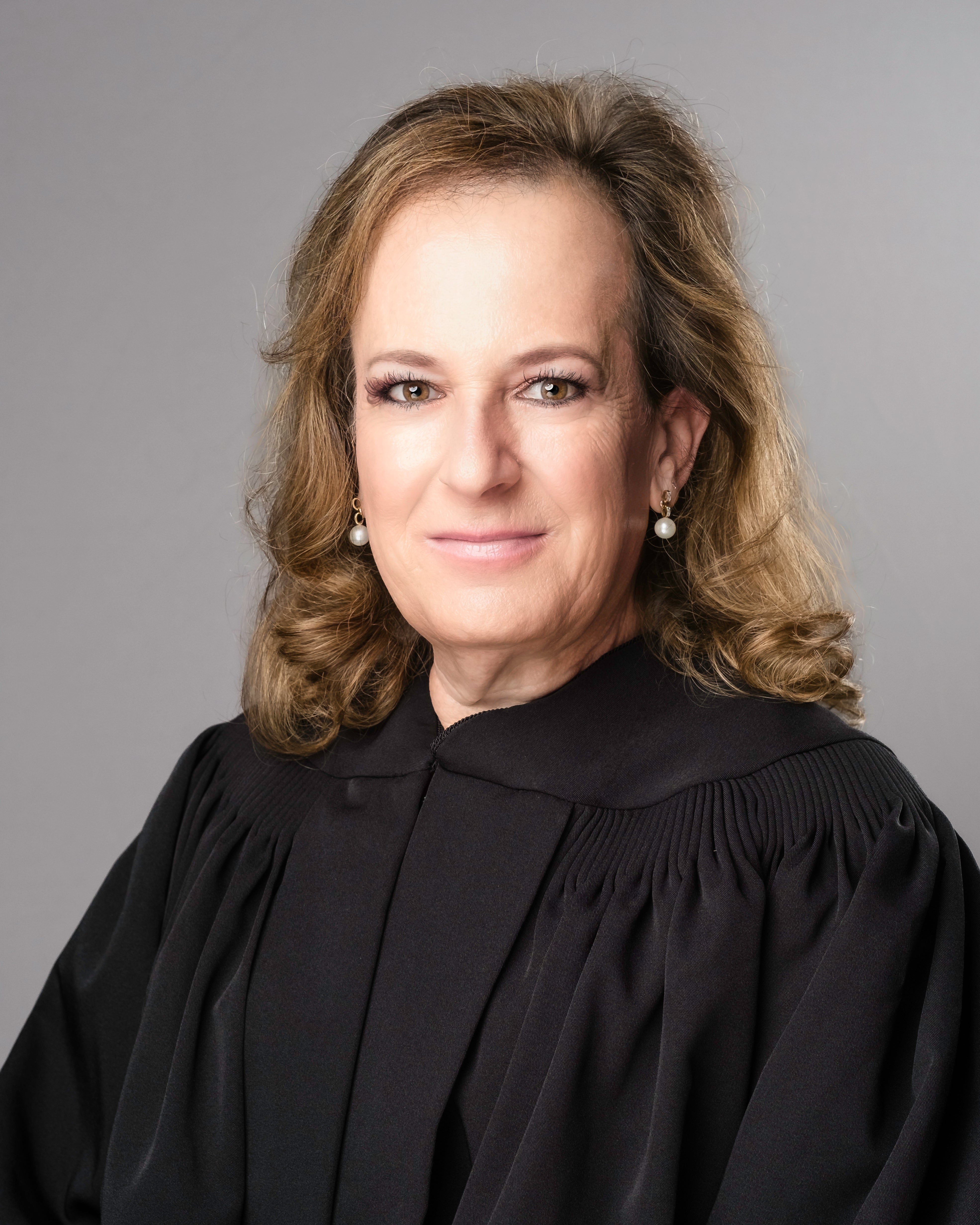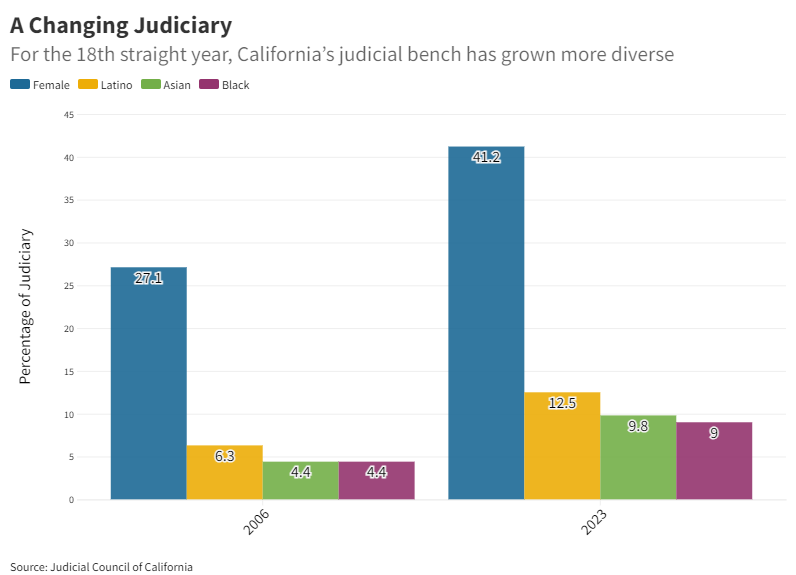
Celebrating LGBTQ+ Diversity in the California Courts: Sacramento County Judge Andi Mudryk
This June, California courts and the Judicial Council of California join the nation in recognizing LGBTQ+ Pride Month. We've spoken with a few of our LGBTQ+ identifying judges and justices about their experiences serving on the bench and how increasing diversity serves the courts and the public.
Judge Andi Mudryk was appointed to the Superior Court of Sacramento County by Governor Gavin Newsom in March 2022. She is the first openly transgender person to be appointed to the bench in the United States. Prior to serving as a judge, Judge Mudryk served as chief deputy director and chief counsel at the California Department of Rehabilitation.
Following are video highlights and excerpts from a conversation with Judge Mudryk:
*The text of the interview has been edited for length and clarity.
On diversity on the bench:
"Judges are public servants and we serve the entirety of California. California is the most diverse state in the nation, and our population includes people who are members of the LGBTQ+ community. It's incredibly important that the public see themselves in the bench. It lends to the legitimacy of the judiciary and allows judges to have knowledge of the communities that we serve.
I oversee juvenile justice cases and I have transgender identifying kids who come before me. I had one 13-year-old boy who wore an undergarment necessary for his gender dysphoria. When he came into juvenile hall, the staff would not let him wear the undergarment because it was dirty and torn. I ordered them to allow him to wear his undergarment. They came back and they hadn't done it, and so I issued an order to show cause why they didn't abide by my ruling. Then they ordered many of these undergarments and provided one to the boy.
I had knowledge of what gender dysphoria means and the importance of providing this clothing to this individual. I understood that the suicide rate for LGBTQ+ and particularly trans youth is exponentially higher than for the general public, so this example of assisting this young boy shows why it's important to have judges from all walks of life on the bench.
[Being transgender and having a disability (brittle bone disease)] have given me perspectives about diverse people and their experiences. Most of my career was in disability rights work. Coming from a Jewish family, my father's a Holocaust survivor--his parents were murdered in the Holocaust. I am not seeing people as 'other' but understanding that everyone matters and justice matters.
Because I have a disability, I'm able to understand somewhat what it's like for folks who have disabilities to come into the courtroom and navigate the process. For example, people need to hear what is said, so we have assistive listening devices in the courtrooms. We need to make sure people with mental and emotional health issues and other disabilities are able to come into court and that we allow for those accommodations."
On her role models and being a role model:
"One of my role models is Justice Shama Hakim Mesiwala, the first Muslim-American woman to be appointed to the California Court of Appeal. She strongly believes in a diverse judiciary and realizes many of us have been treated as 'other' and feel like we're ‘other’. I'm working to make sure those of us who are ‘other’ are included and are in positions of leadership.
I didn't see anyone like me in positions of leadership growing up or throughout my career, and it's incredibly important for folks to see themselves in leaders. So I feel I have a tremendous responsibility in my role to be visible, to speak, and to be involved in the community at large so that people like me see themselves in a judge and realize they can be the judge. I'm co-chair of the LGBT Judicial Officers of California, on the board of the Women Judges Association, and involved in all of our affinity bar associations."
On her career background and path:
"I've experienced some feedback that those of us who bring diversity to the bench are not as qualified as others-- that we only were appointed because of our diversity. It's a trope we hear, and nobody says it right to our faces, but I want to address that because I have a stellar background and reputation. I believe I'm a good judge and I deserve to have been appointed regardless of my diversity. Many of us, including me, have had to fight harder for where we are than others who have certain privileges.
I had many doors shut in my face early in my career and not being offered certain opportunities because of my diversity. I graduated with honors from a very good law school [George Washington University Law School]. I was a litigator, I'm licensed to practice in three states, and I have served in litigation director roles at nonprofit organizations overseeing class action litigation, challenging laws that negatively impact people with disabilities. I was incredibly well qualified to be appointed, as were my colleagues.






